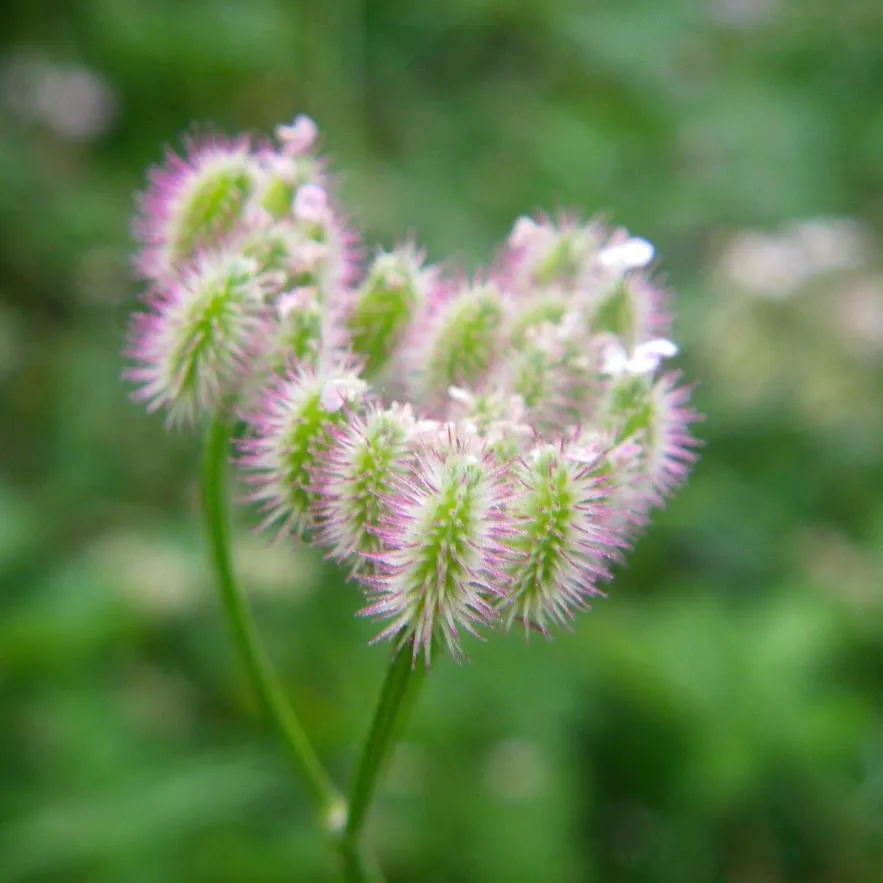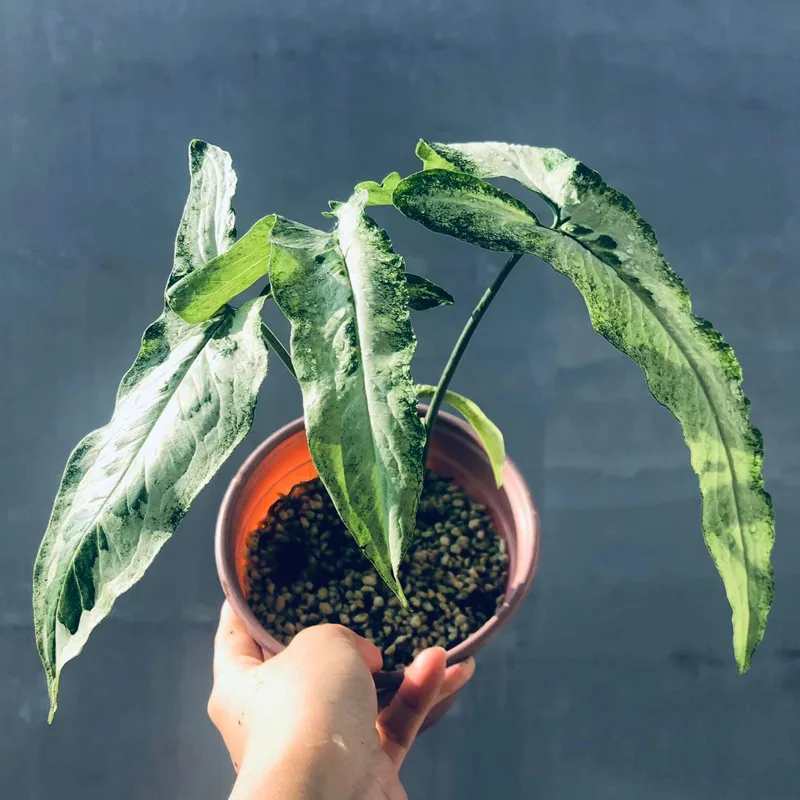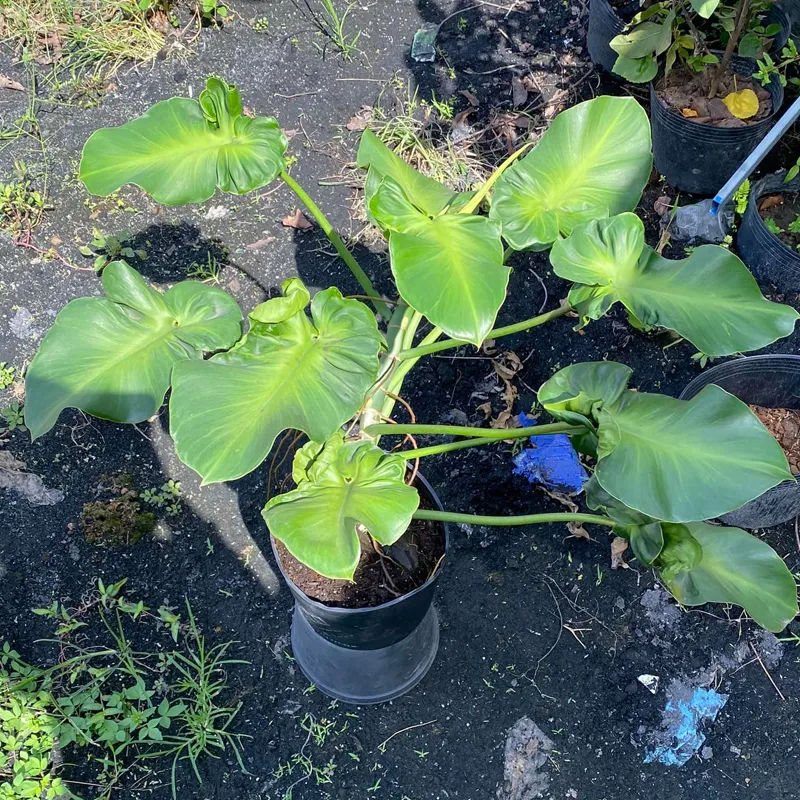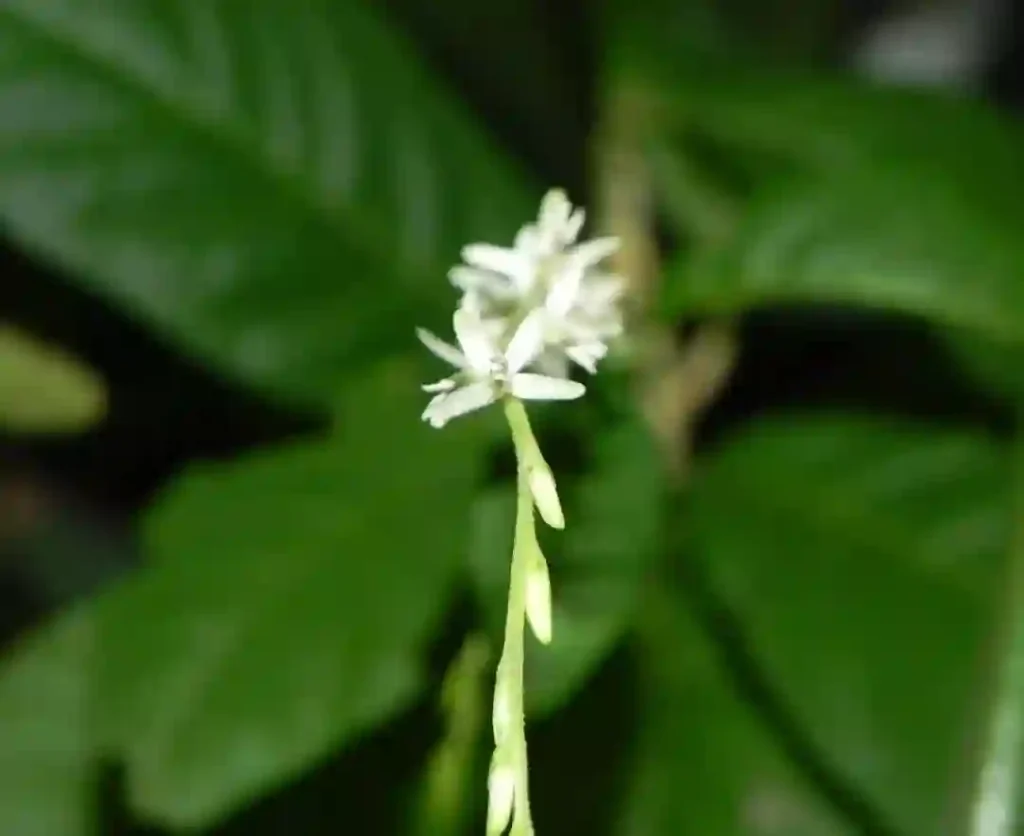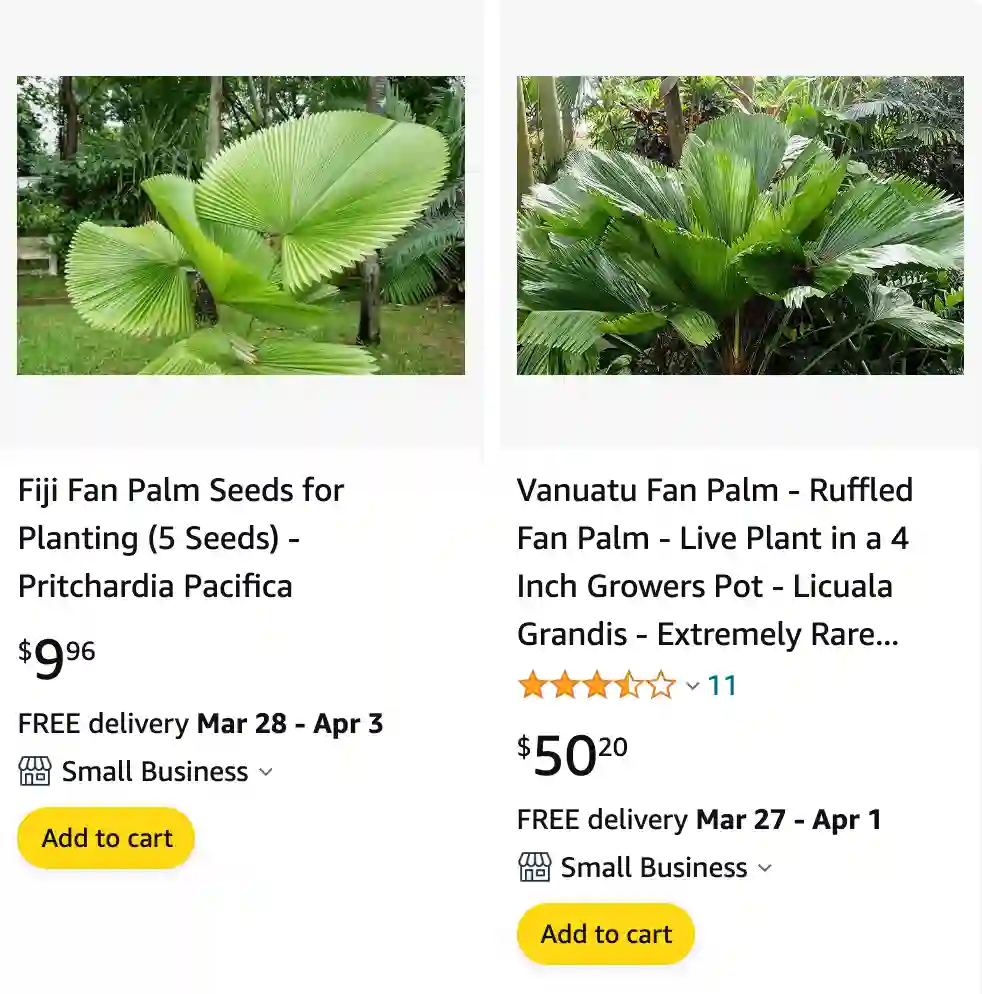
How to care for Licuala cordata?
Here’s a rundown on how to care for your Licuala cordata, also known as the Necklace Palm or Fan Palm:
Light:
- Bright, indirect light: This palm prefers bright, indirect light. Avoid harsh direct sunlight, especially during the afternoon, as it can scorch the delicate leaves. A location near a window with filtered light or sheer curtains is ideal.
Watering:
- Moist but not soggy: Licuala cordata enjoys consistently moist soil, but not waterlogged. Water deeply when the top inch or two of soil feels dry to the touch. Allow some time for drainage before watering again.
Humidity:
- High humidity preferred: Coming from tropical rainforests, Licuala cordata thrives in high humidity levels (around 60% or more). Here are some ways to increase humidity:
- Use a pebble tray filled with water placed under the pot (ensure the pot sits above the water level).
- Group plants together to create a humid microclimate.
- Run a humidifier near your plant.
- Mist the leaves regularly with filtered or distilled water (avoid excessive misting which can encourage fungal diseases).
Temperature:
- Warm temperatures: Maintain a warm temperature range between 65°F and 85°F (18°C and 30°C). Avoid cold drafts and sudden temperature fluctuations.
Soil:
- Well-draining potting mix: Use a well-draining potting mix specifically formulated for palms or aroid plants. A good option is a mix of potting soil, perlite, and orchid bark for optimal drainage and aeration.
Fertilizing:
- Light feeding: Licuala cordata is not a heavy feeder. You can fertilize it monthly during spring and summer with a diluted balanced fertilizer, but it’s not essential for healthy growth.
Repotting:
- Repot infrequently: Due to its slow-growing nature, repotting is only necessary every 2-3 years, or when the roots outgrow the current container. Choose a pot only slightly larger than the root ball with good drainage holes.
Additional Tips:
- Wipe the leaves occasionally with a damp cloth to remove dust and improve light absorption.
- Clean the pot and remove any fallen leaves or debris to prevent pests and diseases.
- Licuala cordata is generally a low-maintenance plant. With proper care, it can add a touch of lush greenery and a unique charm to your indoor space.
By following these guidelines, you can create a thriving Licuala cordata that will bring a touch of the tropics indoors for many years to come.
Where to buy Licuala cordata?
Licuala cordata, due to its rarity, can be a bit trickier to find than common houseplants. Here are some avenues you can explore to purchase one:
Online Retailers:
- Specialty Plant Shops: Several online plant stores specialize in rare and unique tropical plants. Search for terms like “rare palms,” “tropical plant shop,” or “botanical oddities” to find these stores. They might have Licuala cordata available or be able to point you in the right direction. Keep in mind that due to its rarity, expect Licuala cordata to be on the pricier side.
- Etsy: While Etsy has a wider range of products, some sellers offer live plants. You can search for “Licuala cordata” or “Necklace Palm” on Etsy, but be sure to check seller reviews and ensure they have a good reputation for shipping live plants successfully.
Other Options:
- Plant Shows and Events: Attending local plant shows or botanical garden sales can be a great way to find unique and rare plants. Look for events happening in your area and check their vendor lists beforehand.
- Plant Enthusiast Groups: Online forums and communities dedicated to houseplants or rare plants can be a valuable resource. You can connect with other enthusiasts who might know where to find Licuala cordata or have leads on reputable sellers.
General Tips:
- Research before you buy: When purchasing a Licuala cordata online, research the seller’s reputation and ensure they have experience shipping live plants. Read reviews and ask questions about their packing and shipping procedures.
- Consider the climate: Licuala cordata prefers warm and humid environments. If you live in a drier climate, be prepared to provide extra humidity for your plant to thrive.
- Be patient: Due to its rarity, finding Licuala cordata might take some time and effort. Don’t get discouraged and keep searching!
Hopefully, with these tips, you’ll be able to find your very own Licuala cordata and bring a touch of the tropics into your home.
Is Licuala cordata toxic to cats?
Licuala cordata is not listed as toxic to cats by major animal health organizations like the ASPCA. However, it’s always best to keep any houseplants out of reach of pets to prevent any potential issues. If you notice your cat showing signs of distress or unusual behavior after coming into contact with any plant, consult your veterinarian promptly.
If i die, water my plants!
